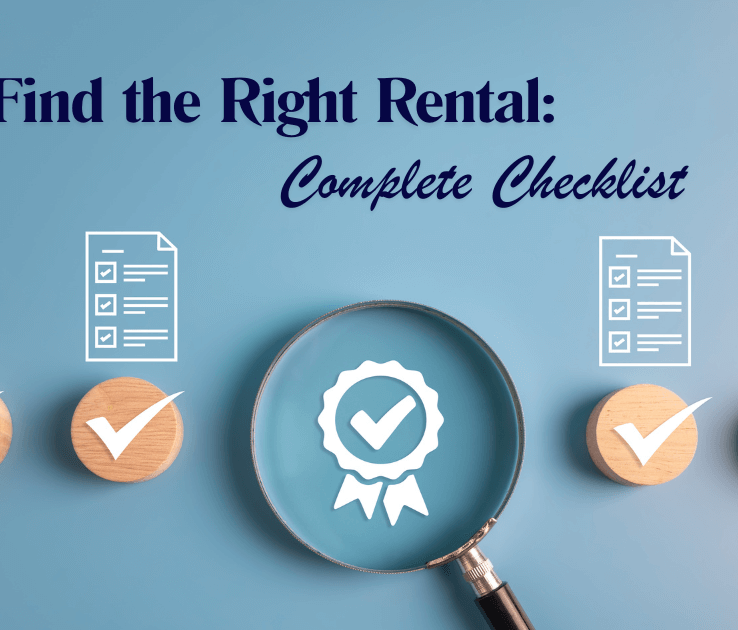When you’re renting a home, duplex, or apartment, the last thing on your mind might be insurance. After all, isn’t that your landlord’s job? Not quite. While your landlord’s policy protects the building itself, it doesn’t cover your belongings or financial liability. That’s where renters insurance coverage becomes essential.
It’s one of the most affordable ways to protect what matters most, giving tenants peace of mind if unexpected events — like fire, theft, or water damage — occur. In this guide, we’ll break down exactly what renters insurance coverage includes, what it doesn’t, and why having it is more important than most renters realize.
According to the Insurance Information Institute, only about 57% of renters don’t carry insurance, even though the average claim payout is more than $3,000. For less than the cost of a daily coffee, you could protect thousands of dollars’ worth of personal property — not to mention shield yourself from unexpected costs if an accident happens in your rental.
This guide covers everything you need to know: what renters insurance covers, what it doesn’t, how much it costs, and why most experts (and landlords) recommend having it.

What Is Renters Insurance?
Renters insurance, also called tenant insurance, is designed to protect people who rent — whether you live in a single-family home, duplex, townhouse, or apartment complex. Unlike homeowners insurance, it doesn’t cover the building’s structure (that’s your landlord’s responsibility). Instead, it focuses on:
- Protecting your belongings from risks like theft, fire, or water damage
- Covering liability if someone gets injured inside your rental
- Paying for additional living expenses if your rental becomes unlivable
Example: If a pipe bursts in your duplex and ruins your furniture, your landlord’s insurance won’t help — but your renters policy will.
Find your next rental home in Midland, MI — browse our available properties today.
What Does Renters Insurance Cover?
Most standard renters insurance policies include four key types of coverage:
1. Personal Property Protection
This covers your belongings against risks like:
- Fire and smoke damage
- Theft or burglary
- Vandalism
- Certain water damage (like from a burst pipe)
- Storm damage (wind, hail, lightning)
Examples of covered items:
- Electronics (laptops, TVs, gaming systems)
- Furniture and appliances you own
- Clothing, shoes, and accessories
- Kitchen items, books, décor, and more
Many policies even cover belongings outside your home — like a laptop stolen from your car.
Average coverage: $20,000–$30,000 by default (can be increased).
2. Liability Coverage
Accidents happen. Liability coverage protects you if you’re legally responsible for someone else’s injury or property damage.
Examples:
- A guest trips on your rug and breaks their arm
- Your dog bites a neighbor
- You accidentally flood the apartment below you
Most policies start at $100,000, but many experts suggest at least $300,000 in liability protection.
Renters in Midland, MI homes and duplexes should especially consider higher liability limits if they host gatherings or own pets.
3. Additional Living Expenses (ALE)
If your rental becomes uninhabitable due to a covered event, renters insurance helps pay for:
- Hotel or temporary housing costs
- Restaurant meals while displaced
- Laundry or storage fees
Imagine a kitchen fire forces you out of your duplex for two weeks. ALE coverage ensures you’re not paying the entire hotel bill yourself.
4. Medical Payments to Others
This covers minor medical expenses if a guest is injured in your rental — even if you’re not at fault. Coverage usually ranges from $1,000–$5,000.
Already renting with us? Visit our Tenant Resources for more guides like this.
What Does Renters Insurance Not Cover?
Just as important as knowing what’s covered is understanding what isn’t. Common exclusions include:
- Flood damage → Requires a separate flood policy
- Earthquake damage → May require add-on coverage in high-risk areas
- Pests → Bed bugs, rodents, and infestations are not covered
- Your roommate’s belongings → Unless they’re listed on your policy
- High-value items → Jewelry, fine art, and collectibles may need a rider or endorsement
Tip: If you own an engagement ring, expensive camera gear, or other high-value items, ask about scheduled personal property coverage to fully protect them.
Do You Really Need Renters Insurance?
Short answer: Yes.
- Your landlord’s insurance won’t protect you. Their policy only covers the building, not your personal property.
- It’s extremely affordable. The average U.S. policy costs just $15–$20 per month.
- It’s often required. Many landlords make it mandatory before move-in.
- It prevents financial disasters. Whether it’s a break-in, burst pipe, or guest accident, you’re protected.
Myth: “Renters insurance is unnecessary because nothing bad will happen to me.”
Reality: The average liability claim costs $15,000+ — far more than most renters could pay out-of-pocket.
How Much Renters Insurance Do You Need?
The right amount depends on your situation. Here’s a quick checklist:
- List your belongings → Walk through your rental and record major items with estimated replacement costs.
- Estimate replacement value → Add everything up — furniture, electronics, clothing, kitchen items.
- Choose liability coverage → Experts recommend at least $300,000 if you host often or own pets.
- Add riders for valuables → Jewelry, collectibles, or musical instruments may need extra coverage.
You can also use free online renters insurance calculators to estimate your coverage needs.
How to Choose the Right Renters Insurance Policy
- Compare quotes from at least 3 providers
- Bundle with auto insurance for multi-policy discounts
- Look for replacement cost coverage (RCV), not actual cash value (ACV)
- Review exclusions carefully so there are no surprises
- Choose a deductible that balances affordability with coverage (commonly $250–$1,000)
Helpful resource: Insurance Information Institute – Renters Insurance Basics
FAQs About Renters Insurance
Q1: Is renters insurance mandatory?
Not legally, but many landlords require it in lease agreements.
Q2: Does renters insurance cover roommates?
No, unless they’re named on your policy. Each tenant should have their own.
Q3: Does renters insurance cover theft outside the home?
Yes, many policies extend coverage to property stolen from your car, hotel, or storage unit.
Q4: Can I get renters insurance if I have pets?
Yes, liability coverage often includes pet-related incidents like dog bites.
Q5: How fast can I get coverage?
Most providers let you apply online and activate coverage the same day.
Q6: How much does renters insurance cost per month?
On average, $15–$20 per month, depending on coverage amounts, location, and deductible.
Want first access to new homes? Join our waitlist today.
Final Thoughts
Renters insurance might not be the most exciting purchase, but it’s one of the smartest. For just a few dollars a month, you can protect your belongings, your financial security, and your peace of mind.
If you’re moving into a new rental, check with your landlord about requirements, then shop around for a policy that fits your needs. It’s a small investment that can save you thousands.










